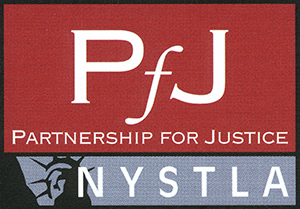3 Defenses For a Drug Possession Arrest
Posted on January 14th, 2019 by Oddo & Babat, P.C.
Criminal Defense Lawyer
After an arrest for a drug possession charge, the accused may be confused and worried about what the future consequences may be. If convicted, the person may face harsh repercussions such as substantial jail time, expensive fines, a ruined reputation, and less employment opportunities. It is highly recommended that immediately after the arrest, the accused consults with a criminal defense attorney DC offers who has experience representing clients in similar predicaments.
Q: What types of drug possession defense strategies may be used?
A: After consulting with you, your attorney is likely to suggest utilizing a drug possession defense. The most commonly used defenses can include unwitting possession, lack of possession, and police abuse of power. These three strategies are explained in further detail below:
-
- Unwitting Possession = the person may have been in possession of the drugs, but he or she was not fully aware that such items were there. A good example of this is if someone sends a package and the mail person was caught in possession of the item, he or she cannot be held legally liable. Another common situation is if law enforcement searches a home and finds drugs that the person was not aware was even there, then the unwitting defense may be the most appropriate strategy.
-
- Lack of Possession = used when it is difficult for the prosecution to prove the accused had an intent or ability to control the illegal drugs. For instance, in a home that is rented by several people at once, it can be challenging to arrest just one person for drug possession. It is entirely possible that the accused is innocent, and it could have been someone else who owned the drugs.
- Police Abuse of Power (Entrapment) = law enforcement may use their power to plant drugs, perform an unlawful search and seizure, or use illegal surveillance tools. Entrapment is when officers put pressure on a person to commit a crime when they would have probably not done so otherwise.
Q: Is drug possession considered a misdemeanor or felony?
A: Depending on the circumstances of the arrest, including what type of drug was in possession and in what quantity, it may be categorized as a misdemeanor or felony. Even for simple possession, judges may be more harsh than they need to be in order for the individual to learn his or her lesson. The entire experience of being arrested, booked at a nearby police station, and having to attend court, can be enough for the person to make a positive change in his or her life. An attorney can help protect the accused from facing a harsher set of consequences than what fits the crime. The accused may face the following repercussions for a drug possession conviction:
-
- Probation or house arrest
-
- Heavy fine and penalties
-
- Time served behind bars (in jail or federal prison)
-
- Completion of a rehabilitation program
-
- Serving community service
- Mark on personal record that makes finding employment, being approved for a college loan, permission to own a gun, or join the military more difficult
Thank you to our friends and contributors at The Law Firm of Frederick J. Brynn, for their insight into criminal defense and drug possession.


 I consulted with David the first time a couple of years ago on a serious matter that affected a very close member of my family. Not expecting a good experience from this serious situation coupled with an attorney consultation, the entire thing surprised me as it was pleasant, professional, and completely successful. We found him clear, direct, generous and extremely knowledgeable throughout the process. I give my very strongest recommendation
I consulted with David the first time a couple of years ago on a serious matter that affected a very close member of my family. Not expecting a good experience from this serious situation coupled with an attorney consultation, the entire thing surprised me as it was pleasant, professional, and completely successful. We found him clear, direct, generous and extremely knowledgeable throughout the process. I give my very strongest recommendation








